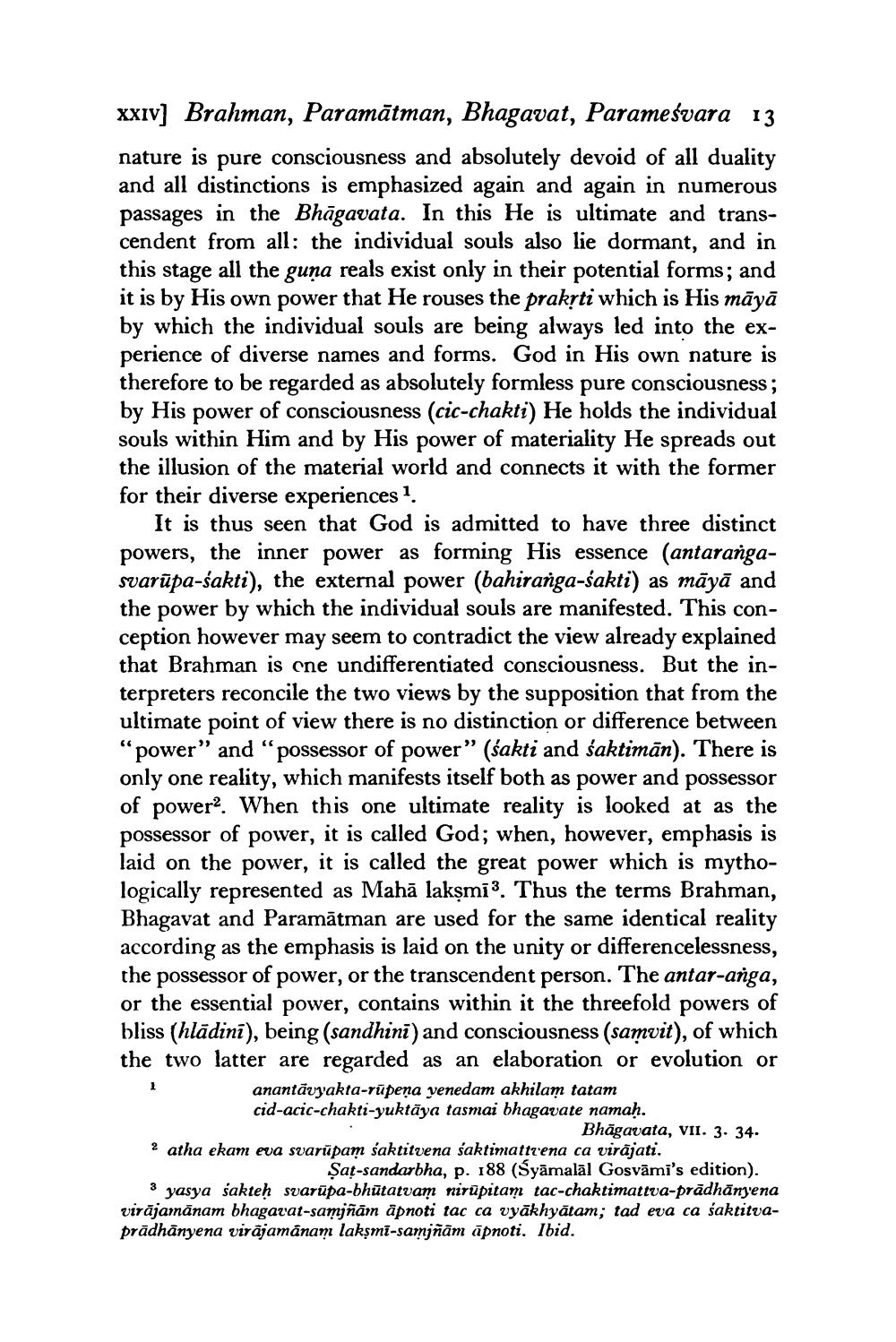________________
xxiv] Brahman, Paramātman, Bhagavat, Parameśvara 13 nature is pure consciousness and absolutely devoid of all duality and all distinctions is emphasized again and again in numerous passages in the Bhāgavata. In this He is ultimate and transcendent from all: the individual souls also lie dormant, and in this stage all the guņa reals exist only in their potential forms; and it is by His own power that He rouses the prakrti which is His māyā by which the individual souls are being always led into the experience of diverse names and forms. God in His own nature is therefore to be regarded as absolutely formless pure consciousness ; by His power of consciousness (cic-chakti) He holds the individual souls within Him and by His power of materiality He spreads out the illusion of the material world and connects it with the former for their diverse experiences 1.
It is thus seen that God is admitted to have three distinct powers, the inner power as forming His essence (antarangasvarūpa-sakti), the external power (bahiranga-sakti) as māyā and the power by which the individual souls are manifested. This conception however may seem to contradict the view already explained that Brahman is one undifferentiated consciousness. But the interpreters reconcile the two views by the supposition that from the ultimate point of view there is no distinction or difference between "power" and "possessor of power” (sakti and śaktimān). There is only one reality, which manifests itself both as power and possessor of power?. When this one ultimate reality is looked at as the possessor of power, it is called God; when, however, emphasis is laid on the power, it is called the great power which is mythologically represented as Mahā lakṣmīļ. Thus the terms Brahman, Bhagavat and Paramātman are used for the same identical reality according as the emphasis is laid on the unity or differencelessness, the possessor of power, or the transcendent person. The antar-anga, or the essential power, contains within it the threefold powers of bliss (hlādinā), being (sandhini) and consciousness (samvit), of which the two latter are regarded as an elaboration or evolution or
anantāvyakta-rūpena venedam akhilam tatam cid-acic-chakti-yuktāya tasmai bhagavate namah.
Bhāgavata, VII. 3. 34. 2 atha ekam eva svarūpam saktitvena saktimattrena ca virājati.
Şat-sandarbha, p. 188 (Syāmalal Gosvāmi's edition). 3 yasya sakteņsvarūpa-bhūtatvam nirūpitam tac-chaktimattva-prādhānyena virājamānam bhagavat-samjñām åpnoti tac ca vyākhyātam; tad eva ca saktitvaprādhānyena virājamānam lakṣmi-samjñām āpnoti. Ibid.




